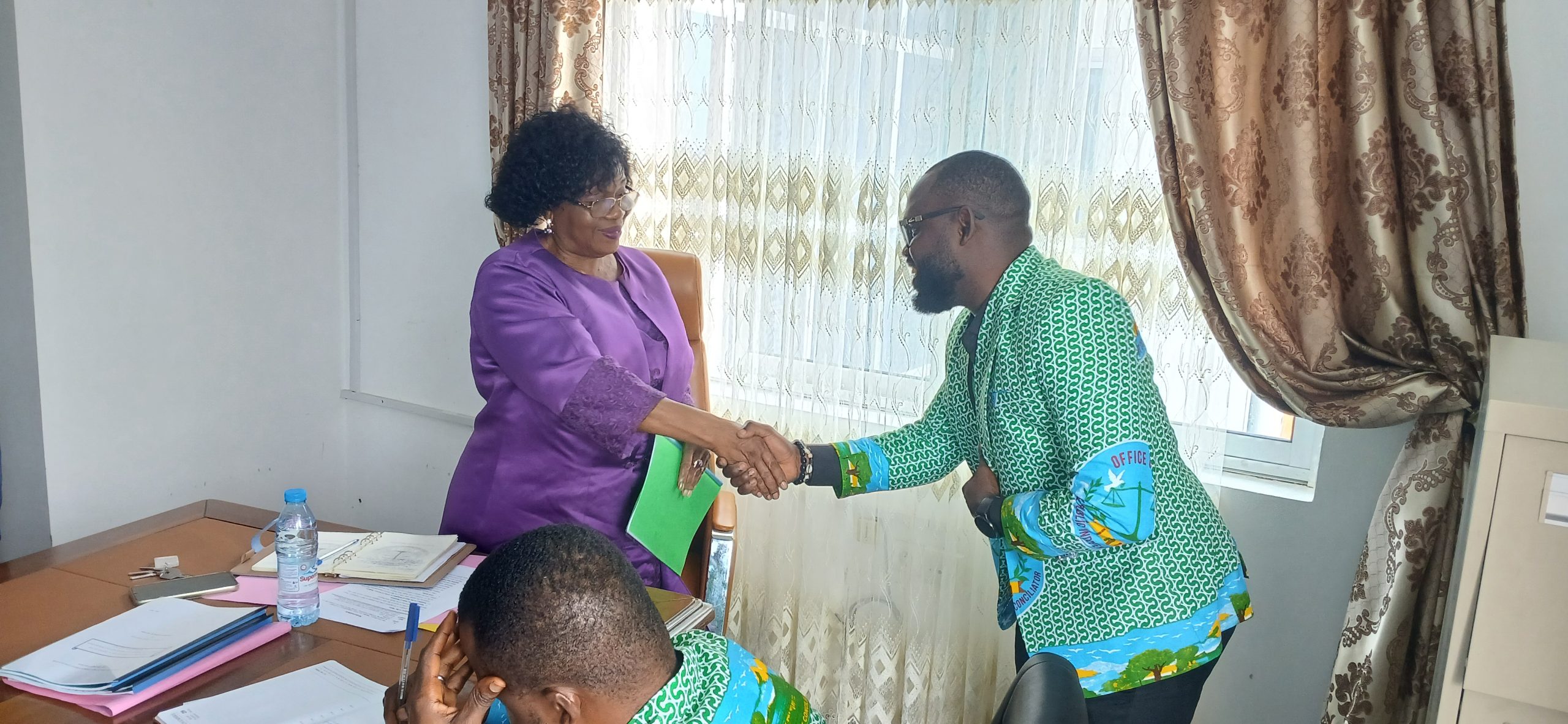
The Public Independent Conciliator (PIC), Mme Telelen Dorothy Motaze, has urged Community-Based Liaison Officers to submit reports that accurately reflect the state of relations between Regional and Local Authorities and the citizens. She made the request during the presentation of the second-quarter reports by the liaison officers on Thursday, July 24th, 2025, at the OPIC conference room.

The Public Independent Conciliator, Mme Telelen Dorothy Motaze reading her Welcome Statement
“…A common shortcoming across most of these reports is the absence of concrete indicators or direct assessments of the relationships between citizens and the respective authorities. Based on this observation, I would like to reiterate that the primary purpose of these reports is not to praise or tarnish the image of local authorities but to gather reliable feedback on effective actions that can directly influence the quality of relations between service users, the population, and our collectives,” she emphasized to the liaison officers. According to the PIC, reports should clearly indicate both the satisfaction and dissatisfaction of users or the community.

Community Based Liaison Officer for Limbe II presenting her second quarter report
To enhance the accuracy of capturing the relationship dynamics between the population and local authorities, the PIC decided, after the first quarter, to dispatch staff to some municipalities for additional follow-up and assessment of the daily activities conducted by council administrations. This follow-up revealed disparities between the reports submitted by some liaison officers and the actual on-the-ground situation.

Community Based Liaison Officer for Alou presenting his report
Generally, the reports presented by liaison officers indicated that the issuance of civil status documents free of charge remains a significant concern in some councils. However, it is important to note that some charges paid by users during this process are due to intermediaries who lure users into passing through them instead of going directly to the civil status registration service. Issues related to hygiene and sanitation, lack of farm-to-market roads, street lighting, and access to potable drinking water continue to be urgent demands voiced by local communities.


